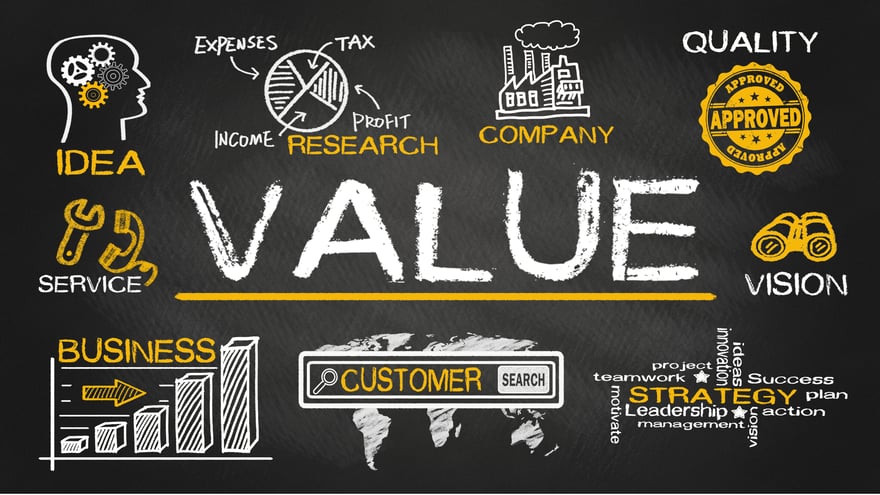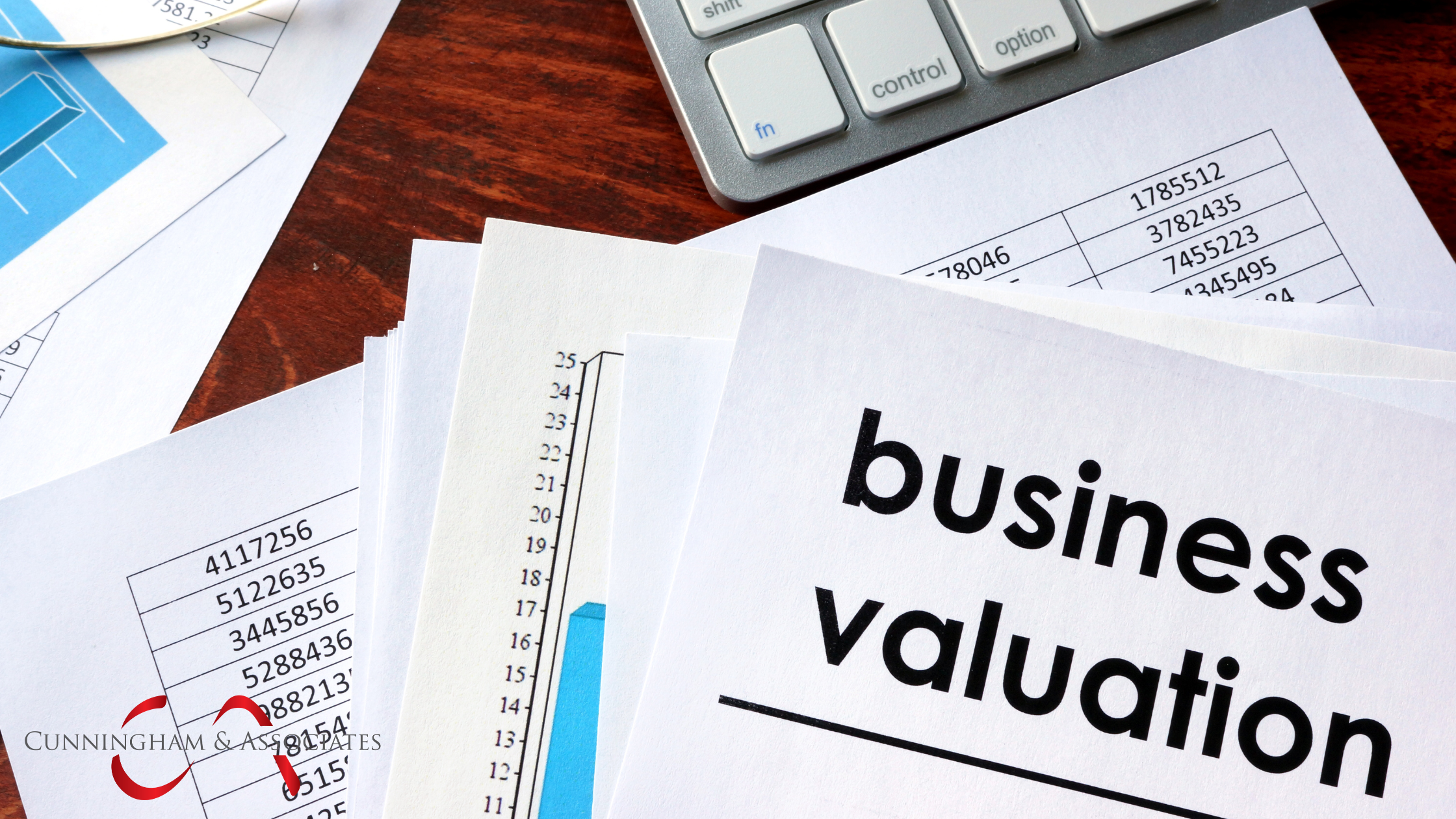According to a study from M&T Bank, 98% of small business owner do not know the value of their company.
Stop for a moment and consider that. Their business, their most valuable asset, likely the centerpiece of their estate and retirement planning, and they don't know it's worth.
It's not an overstatement to say that is frightening.
The Importance of an Accurate Business Valuation
An up-to-date business valuation is not just a simple number on a piece of paper; it holds the key to unlocking the full potential of your company's success. By understanding the true value of your business, you can make informed decisions that drive growth, attract investors, and ensure financial stability. Without a clear understanding of your company's worth, you risk missing out on opportunities, overpaying for assets, or underselling your business.
A precise business valuation is essential for strategic planning, as it provides a solid foundation for setting realistic growth projections and navigating mergers and acquisitions with confidence. It also plays a crucial role in maintaining your reputation and credibility within the industry, as stakeholders rely on accurate financial information to make decisions.
Financial Decision Making
When considering financial decisions for your business, having an accurate valuation is essential. Understanding the true value of your company enables you to make well-informed decisions that can positively impact your business's growth and success. By having a precise business valuation, you can confidently navigate through investment opportunities, expansion plans, and strategic partnerships, ensuring that every decision is supported by reliable financial data.
Attracting Investors
When it comes to attracting investors, demonstrating the true value of your business is paramount. With a precise and up-to-date business valuation, you not only increase credibility and trust but also create a compelling case for potential investors. A thorough understanding of your company's worth can instill confidence in investors, showing them that you have a clear grasp of your business's financial health and growth potential. This transparency can lead to stronger partnerships, increased investment interest, and ultimately, support for your business's long-term success. By highlighting the true value of your business, you can set yourself apart in a competitive market and attract the right investors who align with your vision and goals.
Risks of Outdated Business Valuations
We've touched on the benefits of ensuring you have a proper valuation, but what are some of the risks?
Financial Instability
When business valuations are inaccurate or outdated, it can lead to misleading financial reports that paint an unrealistic picture of the company's financial health. This not only jeopardizes the business owner's ability to make informed decisions but also undermines investor confidence and trust.
Furthermore, relying on misleading financial reporting can hinder the business owner's ability to identify areas for improvement or potential risks, ultimately impacting the company's long-term sustainability. Without a clear and accurate understanding of the business's value, it becomes challenging to secure necessary funding or make strategic investments that could drive growth.
Legal and Tax Consequences
When the true value of a company is not accurately assessed, it can result in disagreements over ownership, asset distribution, and financial responsibilities. These disputes can escalate quickly, causing strain on relationships and impacting the overall stability of the business.
Furthermore, the tax implications of undervaluing or overvaluing assets can have serious consequences for small business owners. Undervaluing assets may result in lower tax obligations, but it can also attract the attention of tax authorities and lead to audits or penalties. On the other hand, overvaluing assets can inflate tax liabilities, draining financial resources and hindering the business's growth potential. It is crucial for business owners to accurately assess the value of their assets to avoid legal disputes and ensure compliance with tax regulations.
Impact on Strategic Planning
An outdated business valuation can significantly impede your strategic planning efforts by providing inaccurate or misleading information that could lead to misguided decisions and missed opportunities. When your business valuation does not reflect the true worth of your company, it becomes challenging to set realistic growth projections and formulate strategic plans that align with your business's actual financial standing.
Without an accurate valuation, you may find yourself facing difficulties in negotiating mergers or acquisitions, as the value of your company could be undervalued or overvalued. This can not only impact the outcome of such transactions but also affect your ability to secure favorable terms and maximize the value of your business.
Moreover, an outdated business valuation can damage your company's reputation and credibility within the industry. Stakeholders, including investors and clients, rely on accurate financial information to make decisions and form partnerships. If your valuation is not up-to-date or precise, you risk losing trust and credibility, which could ultimately harm your relationships and competitive edge.
Inaccurate Growth Projections
When it comes to forecasting growth for your business, having an accurate valuation is essential. Inaccurate growth forecasts can lead to misguided strategic decisions and missed opportunities, ultimately hindering your company's potential for success. Without a precise understanding of your business's value, you may overestimate or underestimate your growth potential, leading to inefficient resource allocation and strategic planning.
Mergers and Acquisitions
Negotiating mergers and acquisitions can be a complex and challenging process, especially when the true value of your company is not accurately assessed. One of the main difficulties in these transactions is the risk of undervaluing or overvaluing your business.
Undervaluing your company can result in selling it for less than its true worth, leading to missed opportunities for maximizing value and potentially leaving money on the table. On the other hand, overvaluing your business can deter potential buyers or partners, as they may be hesitant to invest in a company that they believe is overpriced. This can stall or even derail negotiations, ultimately impacting the outcome of the merger or acquisition.
Steps to Ensure an Accurate Business Valuation
- Regularly review and update your financial records, including income statements, balance sheets, and cash flow statements.
- Work with professional valuation services or experts who have the knowledge and experience to conduct a thorough assessment of your business. T
- Consider the market conditions and industry trends that may affect your business's value.
- Seeking feedback from stakeholders, such as investors, clients, and employees, can provide valuable insights into how your business is perceived in the market.
For a comprehensive list, download our Business Valuation Checklist.
At C&A, our Certified Business Analysts can help develop an accurate business valuation to give you the data and peace of mind you deserve. Set up a time with our team today.




